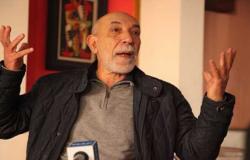Of the scriptwriters and actors, no one has clearly read Alexandre Dumas’ novel, of which all that remains here is an approximate resumption of the main plot embellished with characters sometimes rewritten, sometimes invented. The distinction, taken from the book and repeated by Dantès, between the satisfaction of vengeance and the desire to repair an injustice is only thematic and does not reflect any need felt deep within oneself; from then on, how can one hope to restore the ambiguity of the hero? The studio actor strikes poses, immortalized by firefighter slow motion, goes from cadaverous thinness to Rambo-style bloatedness during a hilarious fitness sequence at the bottom of a putrid prison. Yet it was there that he had to dig, not only an underground passage to freedom but above all his tormented interiority through third parties; Abbot Faria is no longer a confessor, he becomes Father Fouras, guardian of a treasure that is immediately presented and found.
The advertising staging attests to the lack of perspective and the absence of reading offered to the novel: its shots captured in all directions seduce but never embody, fortunately more readable than those of the poor Musketeers destroyed by Martin Bourboulon last year. The music serves as a binder, similar to that used to fill joints and cracks: it seals the scenes and keeps the film in a permanent state, in a most artificial tension which imposes a gravity that the production fails to arouse. . Note, the choice of descending diatonic scales played on the violins comes from Alexandre Desplat’s musical score for Harry Potter and the Deathly Hallows: Part 1 (David Yates, 2010)… Here is a new example of inflation in cinema, saved by its talented actors. Read first, adapt later!






